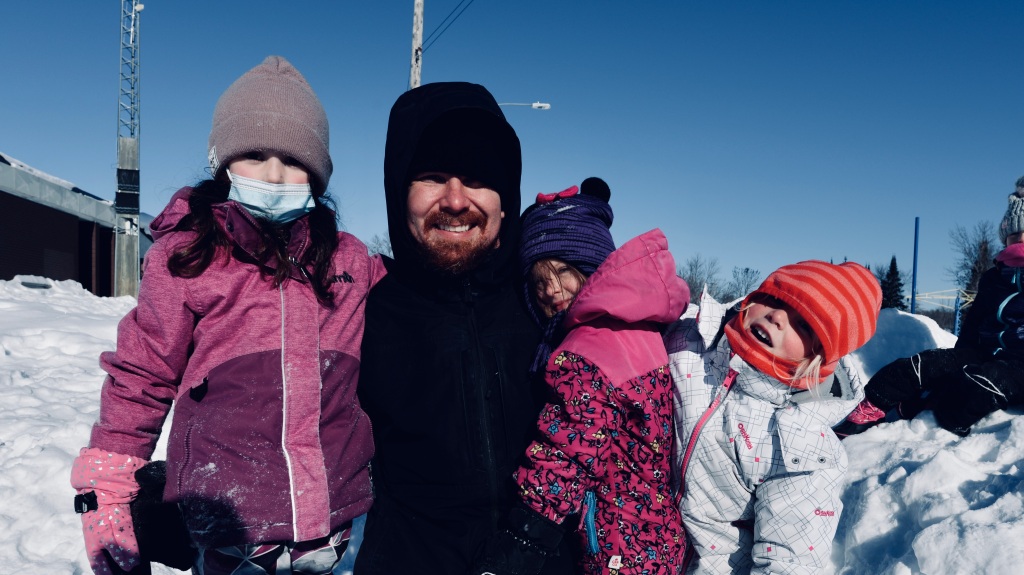Since you elected me last Spring, I have been committed to championing sustainable policy in Council. In 2021 I discovered the Canadian Circular Cities and Region Initiative (CCRI). This national project is designed to help cities reduce waste and generate wealth through the intelligent stewardship of resources (Please watch the classic youtube video, The Story of Stuff, at the end of this article, for more information on linear and circular economies).
I believe that as a society we should not squander resources and trash the environment for future people. We must strive to live in a way that allows future generations to live sustainable, prospersous, and healthy lives.
In 2021/22 I worked at our local elementary school. This was one of the most remarkable and rewarding experiences of my life. As I formed relationships with these young people, it made me think more personally about our vision for the future. In Canada, we have committed as a country to climate and waste goals including acheiving net-zero emissions by 2050. The students I worked with will be around my age by then. When I think about sustainability policy, I think about these kids growing up, and what type of world they will be inheriting from us.

The CCRI cities in 2021 included cities like Montréal, Calgary, and Vancouver. We learned from speakers from the Netherlands, Scotland, and the Americas. As I followed the project, I became fascinated with the question: how can these concepts of sustainable circular cities be applied to a small rural community?
In December of 2021, the Local Government District (LGD) of Pinawa passed by resolution the Sustainable Neighbourhood Action Plan (SNAP). I participated in the Circular Cities & Region Initiative webinar series throughout 2021 which led to the inclusion of the concept of circularity into the LGD’s procurement practices as part of the SNAP. This Summer, I put a motion in Council for Pinawa to apply to participate in the 2022 slate of circular cities, and wrote a letter of intent for the application. I am proud to say that Pinawa has been selected and will be one of the ten participating communities in this national project!

With respect to intergenerational justice, that is the idea that present generations have certain duties towards future generations, such as how available natural resources can be used without threatening the sustainable functioning of the planet’s ecosystems.
The LGD of Pinawa is making improvements to its recycling program and landfill site, however, much more can still be done. As we secure funding to make more capital improvements to these areas, the principles of circularity will stretch those dollars so that we are not spending good money scrapping materials that could actually be used for economic productivity. Our public works department would see great benefits learning from experts in the field of circularity as well as collaborating with other interested municipalities across the country to help find best practices that can be applied in a small town setting.
The Pinawa Community Development Corporation and Economic Development Office also adopted the SNAP, and it is currently being incorporated into a new tourism strategy for the town based on the triple-bottom line approach. I am pleased to share that this strategy features concepts of active transportation, permaculture, and environmentalism (more on this in future post). Circularity concepts would not only be supportive of this sector economically and environmentally, but, through education, could be shared with interested visitors who appreciate Pinawa’s commitment to sustainable living practice.

Incorporate the principles of circularity into procurement and disposal practices.
Sustainable Neighbourhood Action Plan
North Forge East, business incubator headquartered in Pinawa, was instrumental in recently attracting a start up company called Carbonlock to develop their prototype technology here. The project saw the thermal conversion of yard waste materials into biochar, a form of stable carbon which could be used for other purposes. We desire to better identify opportunities for other types of circular start-ups. Entrepreneurs seeking support for circular enterprises in our locale would have access to this excellent resource to capitalize on these economic opportunities. This year we have seen how global supply chain issues can wreak havok on economies. Circularity and locality is key to building economies that are more equitable and resilient.
Pinawa has a tradition of small independent home based businesses. Although often overlooked, these markets do stimulate the local economy, reduce the demand for new disposable consumer goods, and support the social development of the community. The LGD of Pinawa would do well to learn about best practices for ordinances and by-laws that facilitate positive growth of this sector through circularity. We hope to encourage more citizens to participate in this local economy; reducing waste and the economic leakage of online shopping or long trips to distant big-box stores, while supporting our neighbours with productive trade. I believe that community markets are vital for fostering independant local economic activity.

A society grows great when old men plant trees whose shade they know they shall never sit in.
The LGD of Pinawa has taken the initial steps toward circularity, through the development and adoption of high level policy that serves as a foundation for circular strategies. My vision is for Pinawa to be a leader in modelling sustainability and circularity practices, demonstrating that such projects are not limited to large urban centres in cosmopolitan cities, but are completely feasible in rural areas. Indeed, in Canada, a significant portion of the population still reside in rural communities and cannot be overlooked when planning for future green economies. With the support of Circular Cities and Regions Initiative, and citizens like you, Pinawa will be a visible leader in sustainable circular practice on a regional, provincial, and national level.
Be well,
Michael
If you would like more information on cirucular and linear economies, check out this classic video, The Story of Stuff!
Why is saving something for the next generations important to you?





Leave a comment